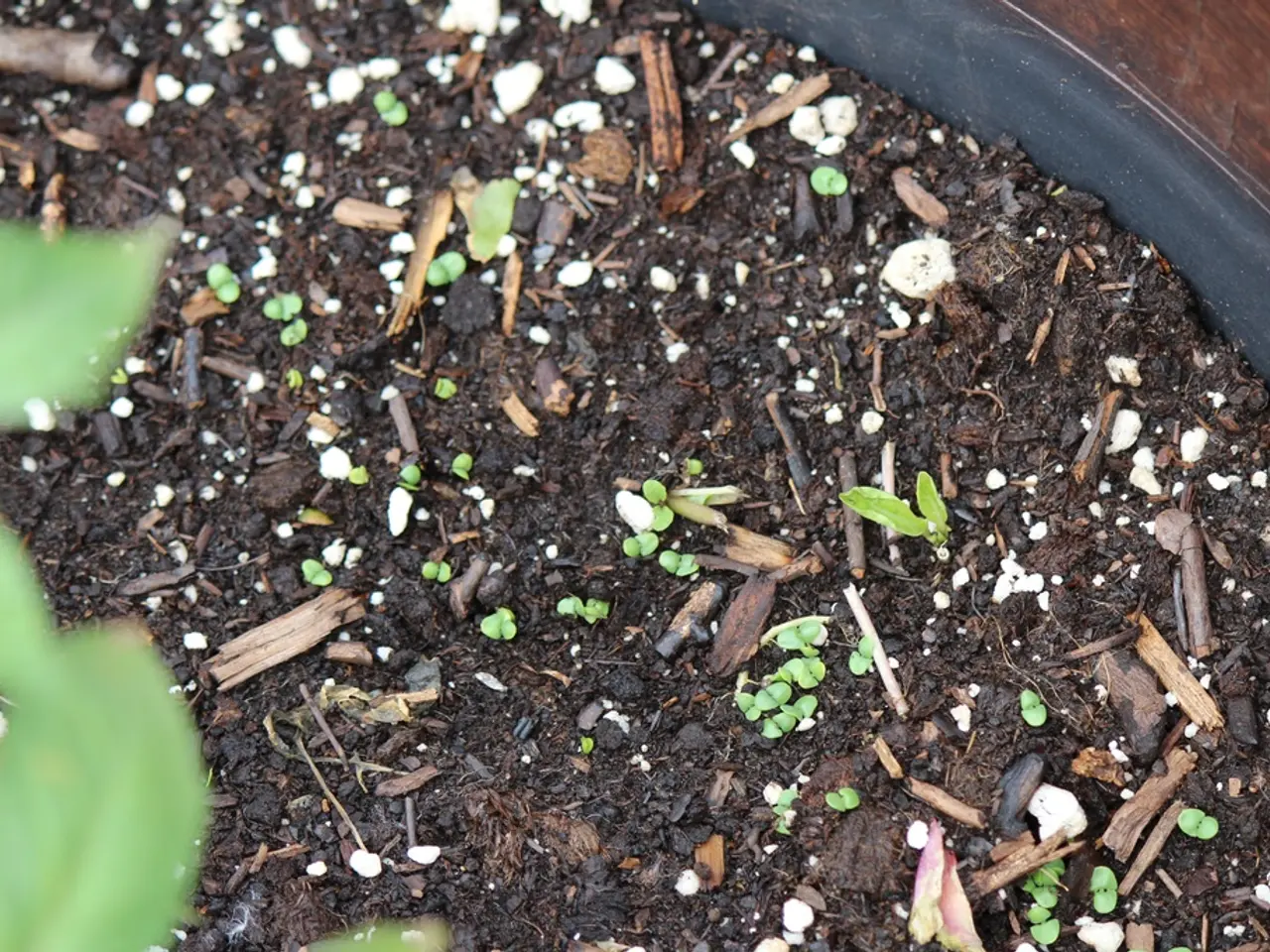Effective Ways to Compost on Small-Scale Agricultural Properties
==============================================================
In the realm of sustainable farming, composting has emerged as a crucial practice that not only reduces waste but also enriches soil, promoting plant growth and health. This article explores three effective composting techniques – aerated layered composting, vermicomposting, and decentralized small-scale composting systems – and their benefits for small-scale farming.
Aerated Layered Composting
Aerated layered composting is a method that involves layering green (nitrogen-rich) materials like kitchen scraps and fresh plant matter with brown (carbon-rich) materials such as dry leaves and straw. The key is to maintain good oxygen flow and moisture (similar to a wrung-out sponge). Regular turning of the compost and maintaining an internal temperature of 130°F to 140°F optimizes microbial activity for decomposition, ensuring efficient decomposition, reduced odors, and production of nutrient-rich compost that improves soil nutrient retention and structure [1][4].
Vermicomposting
Vermicomposting is a technique that utilizes earthworms to break down organic waste. It is ideal for small-scale and indoor environments, producing compost rich in plant growth hormones and essential nutrients like nitrogen, phosphorus, and potassium. Vermicompost enhances soil structure, fertility, water retention, and root development. However, it requires attentive maintenance, is time-consuming (up to six months), and is limited in processing volume. It can sometimes attract pests and produce unpleasant smells [3].
Decentralized Small-Scale Composting Systems
Decentralized small-scale composting systems focus on managing organic waste close to the source, such as within a farm or community. Integration of technologies like biochar addition and IoT-based monitoring can optimize compost quality by improving nutrient retention and reducing emissions. These systems reduce municipal waste hauling costs, extend landfill lifespan, and promote local circular economies. Community engagement and supportive policies enhance their socioeconomic and environmental impacts [2].
The Benefits of Composting
| Composting Technique | Key Benefits | |------------------------------|----------------------------------------------------------------------------------------------| | Aerated Layered Composting | Efficient decomposition, pest reduction, improved nutrient retention, improved soil health | | Vermicomposting | High nutrient content, promotes plant growth hormones, improves soil structure, year-round | | Decentralized Small-Scale | Emission reduction, cost savings, waste diversion, supports circular economy |
For sustainable small-scale farming, a combination of well-managed layered composting and vermicomposting is often effective, balancing ease of use, nutrient quality, and scalability. Incorporating modern monitoring technologies and community frameworks can further enhance sustainability and socio-economic benefits [1][2][3][4].
Composting plays a significant role in waste reduction and soil enrichment for small farms. By breaking down organic materials into nutrient-rich soil, it encourages beneficial bacteria and fungi that help plants absorb nutrients. Composting can help reduce pests and diseases in plants due to healthy soil. Techniques like bin composting, pile composting, and vermicomposting are effective methods for small farms. Cold composting is a slower, natural process with low maintenance, while hot composting requires regular turning to speed up decomposition. The Bokashi Method is effective for kitchen scraps and requires special buckets. Red wigglers are used in vermicomposting for breaking down food scraps.
In conclusion, composting is a valuable tool for sustainable small-scale farming, reducing waste, enriching soil, and promoting plant growth. By adopting effective composting techniques and practices, small-scale farmers can contribute to a more sustainable and circular agricultural system.
In the context of sustainable living, incorporating garden practices such as aerated layered composting and vermicomposting can enrich home-and-garden soil and provide a nutrient-rich foundation for gardening, fostering a high-quality lifestyle. By adopting these sustainable composting methods, one can contribute to sustainable living, reducing waste and promoting a healthy environment.




